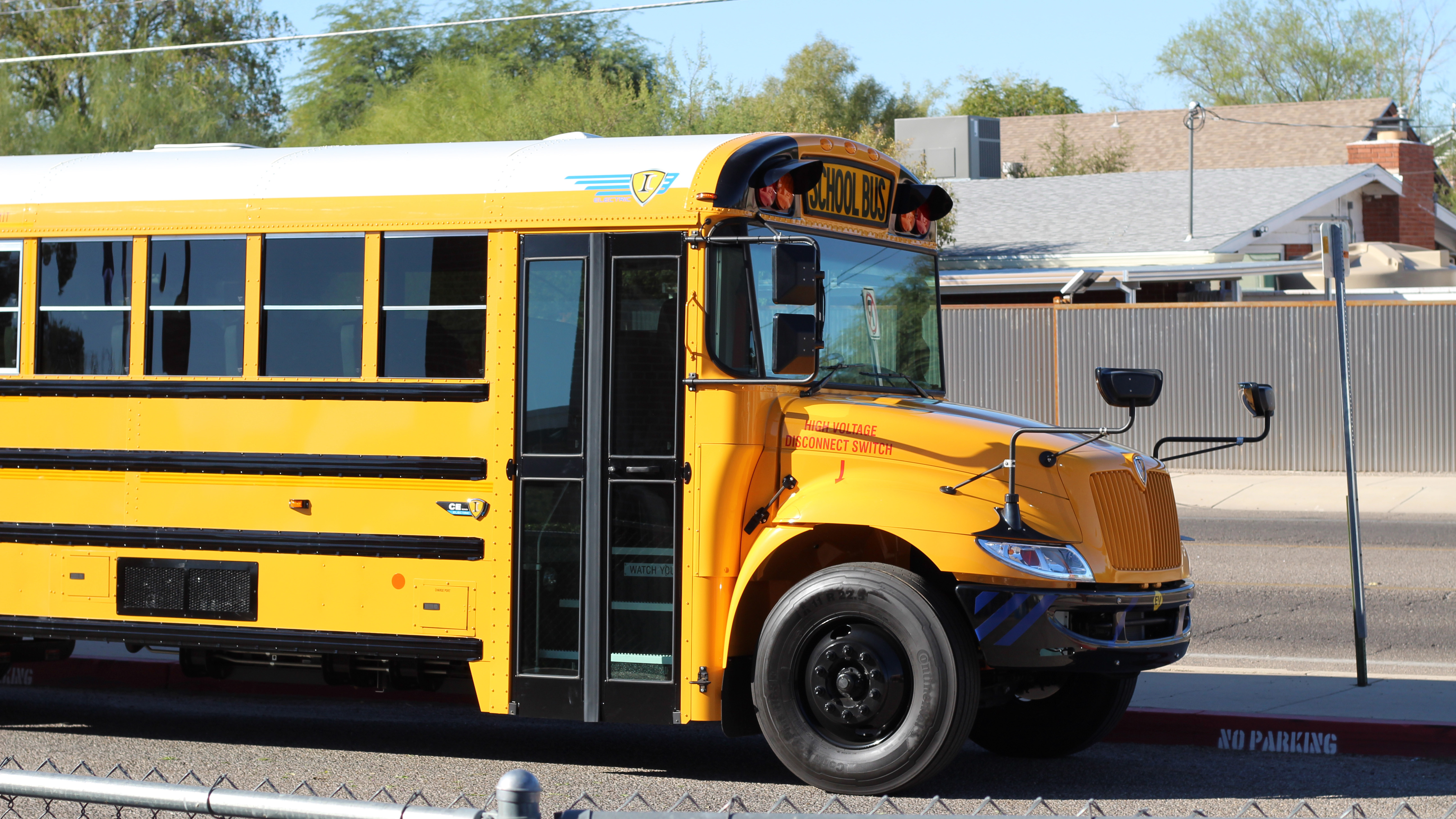 An electric school bus parked outside of John B. Wright Elementary School on Friday, Nov. 15, 2024. The Tucson Unified School District received $4 million from the Environmental Protection Agency to retire 10 diesel school buses, with ten electric school buses as an effort to lower greenhouse gas emissions.
An electric school bus parked outside of John B. Wright Elementary School on Friday, Nov. 15, 2024. The Tucson Unified School District received $4 million from the Environmental Protection Agency to retire 10 diesel school buses, with ten electric school buses as an effort to lower greenhouse gas emissions.
The Tucson Unified School District (TUSD) is getting ten electric school buses through nearly $4 million in funding from the Environmental Protection Agency (EPA).
The federal dollars from the Bipartisan Infrastructure Law (BIL), will allow the district to replace ten of its diesel buses with ten electric buses.
Kevin Gong with the EPA said the change will eliminate 17,000 tons of carbon dioxide emissions over the buses’ twelve-year lifespan– the equivalent of taking 270 cars off the road.
“This funding will also mean fewer visits to the emergency room because of asthma, reduced instances of respiratory illnesses due to air pollution, and fewer days where kids are out sick from school,” Gong said.
The effort is also supported by Tucson Electric Power (TEP), which has contributed $1.1 million to the school district through its electric school bus rebate program.
Ravi Shah, a governing board member with TUSD said that this initiative will help the school district save a significant amount of money.
“We’re saving money upfront as well as every year with our maintenance and operations of these new electric buses and we’re doing our part to improve the environment and reduce our footprint,” Shah said.
The electric buses align with TUSD’s recently passed Climate Action Resolution, which includes plans to fully electrify the school district’s bus fleet.
Shah, who supported the youth-led initiative said the board will complete a proof of concept to evaluate the buses’ range, suitable routes, and project cost savings.
“We’re talking about electrifying our fleet by 2040 so we have 16 years to really achieve some important objectives and this is a really important start to that process,” Shah said.

By submitting your comments, you hereby give AZPM the right to post your comments and potentially use them in any other form of media operated by this institution.